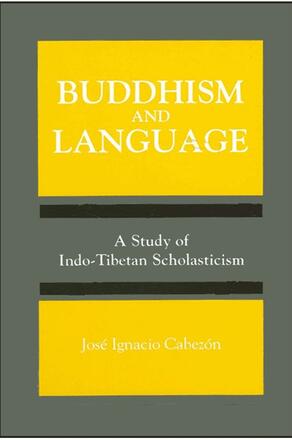
Buddhism and Language
A Study of Indo-Tibetan Scholasticism
Alternative formats available from:
Description
Taking language as its general theme, this book explores how the tradition of Indo-Tibetan Buddhist philosophical speculation exemplifies the character of scholasticism.
Scholasticism, as an abstract and general category, is developed as a valuable theoretical tool for understanding a variety of intellectual movements in the history of philosophy of religion. The book investigates the Buddhist Scholastic theory and use of scripture, the nature of doctrine and its transcendence in experience, Mahayana Buddhist hermeneutics, the theory and practice of exegesis, and questions concerning the authority of sacred texts. It also deals with the Buddhist Scholastic theory of conceptual thought as the mirror of language, the Scholastic defense of logic and rationality as a method, as well as the role of language in the idealist and nominalist ontologies of the Mahayana. Finally, the author treats the question of ineffability and the silence of the Buddha from a new perspective.
Jose Ignacio Cabezon is Associate Professor of the Philosophy of Religion, Iliff School of Theology. He was author of A Dose of Emptiness and editor of Buddhism, Sexuality, and Gender, both published by SUNY Press.
Reviews
"Cabezon has made a careful, consistent case for scholasticism as an important approach to the world within Buddhism and as a cross-cultural category worthy of consideration within the field of religious studies, and he has done so by being explicitly comparative. This is, quite simply, one of the most exciting works of East-West comparison I have seen in a long time and, as a work drawing in a comparative manner on the Buddhist tradition, it is virtually unique. "--Roger Jackson, Carleton College